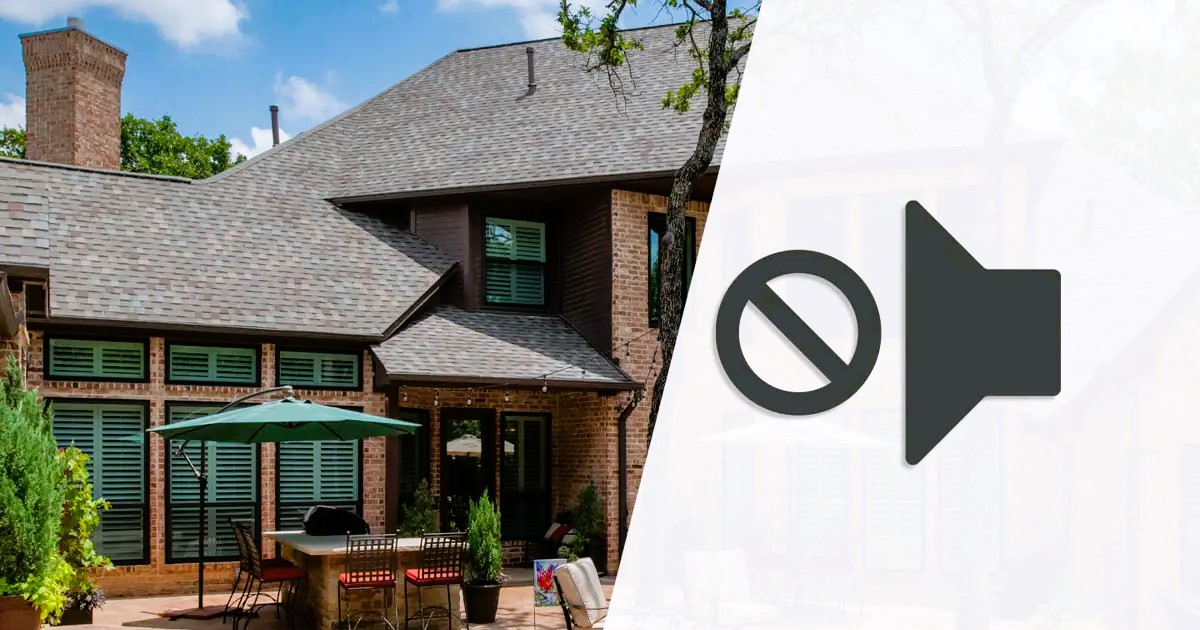A peaceful and quiet home is a sanctuary, offering solace from the noise of the outside world. While the hustle and bustle of everyday life can be exciting, it’s equally important to have a tranquil space where you can unwind and relax. Achieving a quiet and soundproof home often starts with the right windows. In this article, we will explore the science of soundproofing and how choosing the appropriate windows can significantly reduce noise, creating a more peaceful living environment.
Understanding the Impact of Noise
Noise is an unavoidable part of modern life. Whether it’s the roar of traffic, the hum of appliances, or the chatter of neighbors, noise can be a constant presence. Excessive noise not only disrupts your peace and quiet but can also have adverse effects on your well-being, including increased stress, sleep disturbances, and reduced concentration.
To mitigate these negative impacts, it’s crucial to understand the science of sound and how it interacts with your home’s environment.
The Science of Sound
Sound is a form of energy that travels through the air in waves, creating vibrations in the form of pressure fluctuations. These waves are detected by the human ear and processed by the brain as sound.
Sound is measured in decibels (dB), with higher decibel levels indicating louder sounds. The intensity and frequency of sound waves determine their impact. Low-frequency sounds, such as bass from music or vibrations from heavy machinery, can be particularly challenging to block.
How Sound Travels
Sound travels in waves, and when it encounters a barrier, such as a wall or window, it can be reflected, absorbed, or transmitted through the material. The ability of a material to block or reduce the transmission of sound is known as its sound transmission class (STC) rating. A higher STC rating indicates better soundproofing capabilities.
The Role of Windows in Soundproofing
Windows are a vulnerable point in a building’s envelope when it comes to sound transmission. Standard windows are typically designed for visual clarity and energy efficiency but offer limited soundproofing. To create a quieter home, it’s essential to address the sound transmission through your windows.
Soundproofing Windows
Soundproofing windows involves several strategies and technologies to reduce noise transmission:
1. Double Glazing: Double-glazed windows consist of two layers of glass with a gap in between. This gap acts as a buffer to sound waves, reducing the transmission of noise. Installation of energy efficient windows, more details here.
2. Laminated Glass: Laminated glass windows have an inner layer of plastic or resin that provides additional sound insulation. This layer dampens sound vibrations, making it more challenging for noise to pass through the glass.

3. Seals and Weatherstripping: Proper seals and weatherstripping around windows ensure that there are no gaps or cracks through which sound can enter. A tight seal is essential for effective soundproofing.
4. Thicker Window Frames: The thickness and material of window frames can impact sound transmission. Thicker and denser frames, such as those made from uPVC or metal, provide better sound insulation.
5. Acoustic Curtains and Blinds: Using acoustic curtains or blinds can further reduce noise transmission by absorbing sound waves and preventing them from bouncing around the room.
Sound Transmission Class (STC) Rating
The Sound Transmission Class (STC) rating measures the ability of a building material or construction assembly to reduce sound transmission. A higher STC rating indicates better soundproofing performance. When selecting windows for soundproofing, it’s essential to consider their STC rating. Windows with higher STC ratings can significantly reduce noise from outside sources.
Finding the Right Soundproof Windows
When selecting soundproof windows for your home, it’s important to consider the following factors:
- STC Rating: Choose windows with a high STC rating to effectively block noise.
- Window Style: Different window styles, such as casement or awning windows, may have varying soundproofing capabilities. Consult with a professional to determine the best style for your needs.
- Frame Material: The material of the window frame can impact sound transmission. uPVC and metal frames are often preferred for their soundproofing properties.
- Installation: Proper installation is crucial for effective soundproofing. Be sure to hire experienced professionals to install your soundproof windows correctly.
Additional Soundproofing Strategies
In addition to soundproof windows, there are other strategies you can employ to create a quieter home environment:
- Add Area Rugs: Placing area rugs on hard flooring surfaces can absorb and dampen sound.
- Use Acoustic Panels: Acoustic panels on walls can reduce sound reflections and improve sound quality within a room.
- Seal Gaps: Seal any gaps and cracks in walls, doors, and floors to prevent sound from leaking in or out.
Finding More Information on Soundproofing
For more in-depth information on soundproofing and related standards and guidelines, you can visit Canada.ca website. These resources offer insights into the science of soundproofing, various soundproofing materials and technologies, and best practices for creating a quieter living environment.
In conclusion, understanding the science of sound and the role of windows in soundproofing is essential for creating a quieter and more peaceful home. By choosing the right soundproof windows and implementing additional soundproofing strategies, you can significantly reduce noise, enhance your well-being, and create a serene living space.


